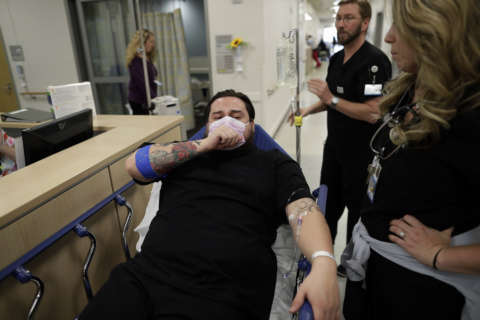WASHINGTON — The Maryland Department of Health on Tuesday confirmed the first influenza-associated pediatric death in the state this flu season.
Influenza-associated pediatric deaths are required to be reported to the health department, but the department cannot discuss the specifics of individual cases.
“Influenza is an extremely serious, and sometimes deadly, disease, and this flu season has been proven to be particularly severe,” said Dr. Howard Haft, deputy secretary for Public Health Services. “We’re continuing to urge Marylanders to get their flu shots, stay home from work if they are sick, and practice other preventive measures to stop the spread of flu.”
Public health officials in Maryland began noticing an increase in the flu in mid to late December and are warning the public to take measures to prevent getting the flu, especially getting a flu shot.
The CDC recommends that everyone older than 6 months get one. Infants and the elderly are particularly vulnerable to the flu.
This has been a particularly bad flu season all across the country. The CDC said all but two states and the D.C. reported “widespread” flu activities for the week ending on Jan. 27, 2018.
This year’s flu season has been driven by a strain that tends to put more people in the hospital and caused more deaths than other common flu bugs, the Associated Press reports.
Common symptoms of the flu include fever, body aches, fatigue, coughing and a sore throat. Symptoms usually being one to four days after being exposed for the virus.
Since the flu is highly contagious, the CDC recommends that people with symptoms stay home from work, school, running errands and visiting friends or relatives. It’s also strongly recommended that you contact your healthcare provider shortly after you start experiencing symptoms.
Here are some tips from the CDC to avoid catching the flu:
- Try to avoid close contact with sick people.
- Wash your hands often with soap and water or use an alcohol-based hand sanitizer.
- Avoid touching your eyes, nose and mouth. Germs spread this way.
- Practice other good health habits such as these:
- Clean and disinfect frequently touched surfaces at home, work or school, especially when someone is ill.
- Get plenty of sleep, be physically active, manage your stress, drink plenty of fluids and eat nutritious food.






